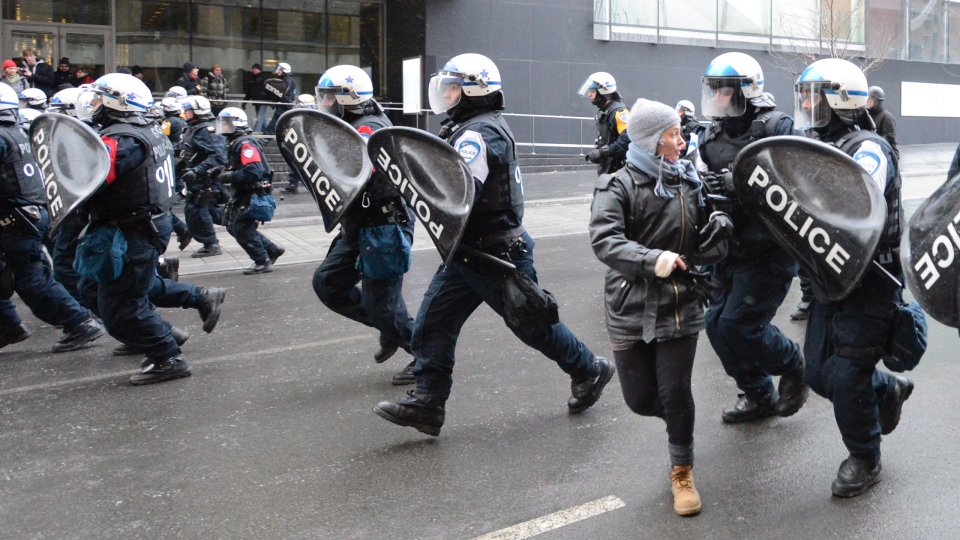Are We More Peaceful? John Gray Says No
Writing in The Guardian, philosopher John Gray tells us plainly: Steven Pinker is wrong about violence and war. He attempts to decompose Pinker’s sweeping thesis first presented in his groundbreaking work The Better Angels of Our Nature (2011), zeroing in on what Gray sees as a naive by-the-numbers approach that leaves more complex considerations off the table. (He wrote an earlier piece for Prospect Magazine shortly after the book came out, rehearsing many of the same points.) While I think Gray peters out in the last leg of the essay with a peculiarly mystical tangent, he raises several key questions that merit further discussion.
Many of the counterpoints he offers echo why Pinker’s contention has always left me a bit cold and struck me as incomplete:
- Have we as a species really become less violent, or merely less likely to act on violent tendencies? What if more traditional methods of violence have simply been replaced with other, yet equally destructive, expressions of power and control (e.g., nuclear accessioning, economic inequality and oppression of the poor, mass incarceration, state coercion, etc.)? While developed societies no longer subject discriminated minorities to slaughter, is an expansion of systemic marginalization and subjugation over prolonged periods of time any better?
- Another corollary problem I find among the rhetoric of many Long Peace advocates is the move from ‘less warfare-specific death’ to ‘humanity is becoming more moral’. These seem to be two separate claims. To the first claim, as John Arquilla points out here, focusing too heavily on battlefield deaths is problematic; a better approach might be to chart the number of armed conflicts over time. As for the second, we might ask are we, on balance, becoming a more morally decent, just, collaborative society? And I don’t think that’s something numbers and statistics can ultimately decide.
Ultimately, adhering to a strictly quantitative approach in tracing the decline in death from violence (even apart from the statistical caveats involved with this approach) is to establish a trivial data point while ignoring the broader questions that concern us all. Are we, from a global perspective, actually becoming a more morally decent, just, collaborative society? That, I think, is the far more intriguing question, and one it appears Pinker doesn’t get very far in answering. Gray is not one to mince his words:
The skepticism by commentators like Gray may be the result of two separate claims being conflated. On the one hand is the claim that death-by-warfare is in historic decline, and on the other is the claim that humanity is more peaceful or more moral than ever before. Many, including Pinker himself, have simply pushed the data too far, burdening it with questions it isn’t equipped to answer. By concluding that humanity has entered the most peaceful state of its existence to date, Pinker is overlaying an interpretive gloss that graphs and charts alone cannot quite convey.
If we, however, take Pinker’s research for what it is, we are offered some compelling information on the nature of conflict throughout history. While stable nation states have moved towards a greater dependence on surgical strikes and technologically driven conflict resolution, guerrilla-based warfare is still alive and well throughout the developing world. We’ve also seen a shift from wars fought among major world powers to more internecine conflicts within individual nations. All of this has brought great consequences in terms of per capita death rates, genocides and other mass killings.
We may be far from a peaceful and “humane” species, but the numbers do suggest progress of a kind. I’m not comfortable weighing relative suffering or trying to assign different weights to deaths. There’s no suffering scale we could objectively agree upon, so the raw metrics must stand on their own. What they do provide is added context with which to entertain deeper questions relating to moral progress and global harmony.
UPDATE: Pinker has posted his response: Guess what? More people are living in peace now. Just look at the numbers
Feature image via The Canadian Press. Riot police charge during an anti-police brutality demonstration in Montreal on Friday March 15, 2013. (Ryan Remiorz / THE CANADIAN PRESS)



Comments